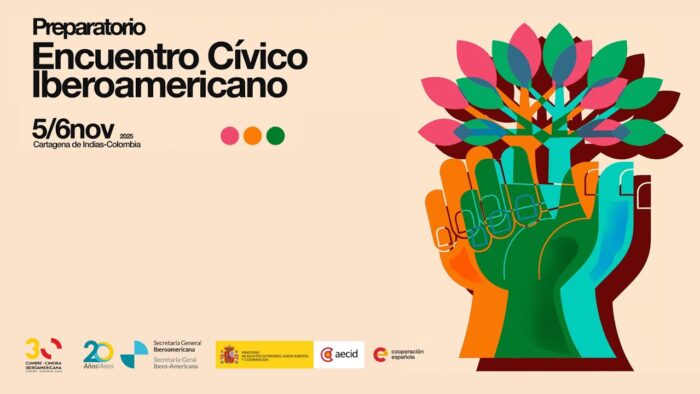Panama: TECHNICAL SUPPORT FOR THE IMPLEMENTATION OF THE EDUCATION WORK PLAN, INCLUDING ASSISTANCE WITH KEY PARTNERSHIPS AND COMMUNICATION PRODUCTS
Organization: UN Children’s Fund
Country: Panama
Closing date: 15 Jul 2017
At country level, UNICEF supports governments and community-based initiatives that guarantee access to school and provide training on strategies to improve the quality of education and improve learning, reduce repetition and dropout rates and help increase the participation of families and communities in schools.
UNCEF LAC RO contributes to ensuring that every girl, boy and adolescent in LAC benefits from policies, programmes and interventions that guarantee their access to education and learning opportunities from early childhood, through primary and secondary education. Programming efforts prioritize delivering results for children who are most at risk of not fulfilling their right to education, particularly, out-of-school children, children with disabilities, children who suffer discrimination because of their ethnicity, and those affected by armed violence, and emergencies. Strategic areas of work include improving transitions between education levels (e.g. early education to primary school and primary school to lower secondary), preventing/reducing school dropout, improving access, completion, and the relevance and flexibility of the education systems, and the identification and strengthening of innovative responses to improve learning environments and learning outcomes for all children.
To support Country Offices to achieve these goals the Education Section at the Regional Office sustains key partnerships with other international agencies, regional inter-governmental organizations, research centers, and other relevant partners to create regional dynamics, agendas and policies aligned to country priorities to respond to children and adolescents needs.
Purpose of the Assignment
To provide technical support needed for the implementation of the Education work plan, as well as to provide strategic support with key partnerships and communication products related to the education agenda for LACRO.
Assignment Tasks
Within delegated authority, the Contractor will be responsible for the following duties within the
Education Section in UNICEF LAC Regional Office:
• Support the establishment, implementation, reporting, and oversight of agreements with key partners, mainly CECC-SICA, CLADE, UNESCO, CELAC, MERCOSUR and other relevant partners.
• Provides support to coordinate the production and publication of the Inclusive Education Booklets.
• Provides support to the drafting on the Guidance Note on Children with Disabilities.
• Provides support in the preparation of presentations and/or graphic materials such as infographics, using appropriate technology/software, ,
• Provides support in the launching and coordination of the disability/inclusive education cluster: supports the drafting of ToRs, the facilitation of meetings, keeps updates and maintains distribution lists; creates and updates an online repository of materials
• Facilitate and coordinate the completion and publication of publications/documents on education,
• Support in the inter-sectoral coordination between Education and other sections in LACRO.
• Support the Education Section in the preparation and facilitation of information for PFP.
• Support the yearly LACRO reporting process on Education
Expected Deliverables
The consultant is expected to develop the following products:
Date:
Deliverables:
15 Aug 2017
– Report on current partnerships developed
– Revised Inclusive Education Booklets no. 1 and 2
– Coordinated the edition of the Inclusive Education Booklets no. 1 and 2
– Prepared ToRs for the disability/inclusive education cluster
– Coordinated the preparation of a funding proposal for a partnership with SAMSUNG
– Prepared inputs for the Education and ECD newsletter
– Prepared a progress report on partner agreements with CECC-SICA, CLADE, UNESCO, CELAC, MERCOSUR
– Provided inputs for the Education RTF package
15 Sep 2017
– Revised Inclusive Education Booklets no. 3-6
– Coordinated the edition of the Inclusive Education Booklets no. 3-6
– Created an online repository of materials for the disability/inclusive education cluster
– Coordinated the revision of the documents on good practices and experiences on working with children with disabilities in the LAC region
– Prepared inputs for the Education and ECD newsletter
– Prepared a progress report on partner agreements with CECC-SICA, CLADE, UNESCO, CELAC, MERCOSUR
15 Oct 2017
– Revised Inclusive Education Booklets no. 7-10
– Coordinated the edition of the Inclusive Education Booklets no. 7-10
– Updated distribution list for the disability/inclusive education cluster
– Updated online repository of materials for the disability/inclusive education cluster
– Prepared inputs for the Education and ECD newsletter
– Prepared a progress report on partner agreements with CECC-SICA, CLADE, UNESCO, CELAC, MERCOSUR
– Provided inputs for the Education RTF package
– Designed a power point presentations and graphic materials such as infographics, using appropriate technology/software, including –but not limited to- one presentation (in English and Spanish) of the Secondary Education Strategy.
– Coordinated the layout, copy editing and other publishing aspects of the Secondary Education Strategy.
15 Nov 2017
– Revised Inclusive Education Booklets no. 11-14
– Coordinated the edition of the Inclusive Education Booklets no. 11-14
– Coordinated and organized the cluster meeting 1.
– Coordinated the revision of the Guidance Note on Children with Disabilities.
– Prepared inputs for the Education and ECD newsletter
– Prepared a progress report on partner agreements with CECC-SICA, CLADE, UNESCO, CELAC, MERCOSUR
15 Dec 2017
– Coordinated the publication of the Inclusive Education Booklets
– Coordinated the edition and publication of the Guidance Note on Children with Disabilities.
– Prepared inputs for the Education and ECD newsletter
– Prepared a progress report on partner agreements with CECC-SICA, CLADE, UNESCO, CELAC, MERCOSUR
– Provided inputs for the Education RTF package
30 Dec 2017
– Updated distribution list for the disability/inclusive education cluster
– Updated online repository of materials for the disability/inclusive education cluster
– Prepared inputs for the Education and ECD newsletter
– Prepared a final report on partner agreements with CECC-SICA, CLADE, UNESCO, CELAC, MERCOSUR
Qualifications of Successful Candidate
Skills and Experience
· Demonstrated interest in the field of development and the work of international organizations.
· Previous experience in:
o Organization of workshops/ events
o Partnership management and building and stakeholder consultations
TORs Technical support Education Program.pdf
Please indicate your ability, availability and daily/monthly rate (in US$) to undertake the terms of reference above (including travel and daily subsistence allowance, if applicable). Applications submitted without a daily/monthly rate will not be considered.
UNICEF is committed to diversity and inclusion within its workforce, and encourages qualified female and male candidates from all national, religious and ethnic backgrounds, including persons living with disabilities, to apply to become a part of our organisation.
How to apply:
UNICEF is committed to diversity and inclusion within its workforce, and encourages qualified female and male candidates from all national, religious and ethnic backgrounds, including persons living with disabilities, to apply to become a part of our organization. To apply, click on the following link http://www.unicef.org/about/employ/?job=505616


